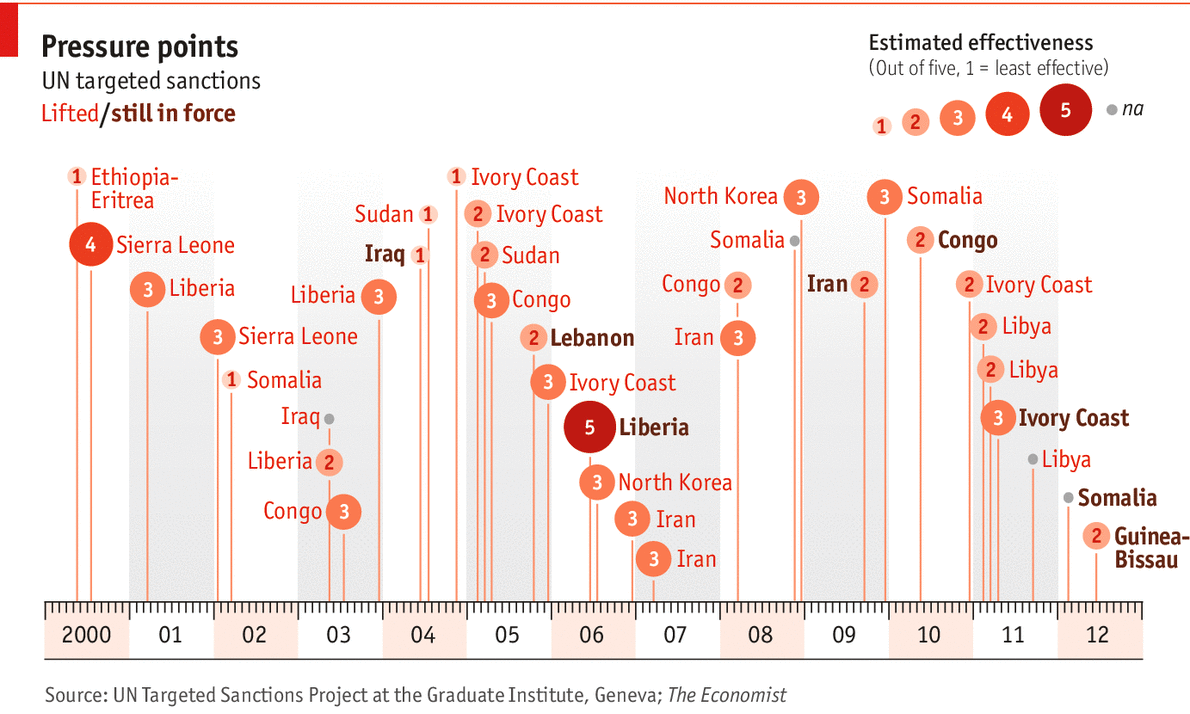Why Large Parts of the Internet Have Suddenly Vanished for Millions of Users
Joon Ian Wong | March 18, 2016
These countries, along with North Korea and Sudan, are subject to US trade sanctions. That means that American companies can’t do business with people or firms with connections to the territories—it is forbidden to ship goods, transfer money, or provide certain services to them. But should the ban also apply to serving web pages to random internet users who happen to live in sanctioned countries?
 |
| The decades-old embargoes on Cuba and North Korea have failed to topple their regimes. UN-backed sanctions against Iraq restricted its access to arms, but caused immense suffering. The role of sanctions in ending apartheid in South Africa is still hotly debated. Some argue that the trade and sports boycotts (and, later, financial sanctions) were crucial in bringing change, others that they delayed it by hardening attitudes among the white minority. Source: http://www.economist.com/news/briefing/21615603-effective-sanctions-have-always-been-hard-craft-too-smart-half |
<more at http://qz.com/640733/why-large-parts-of-the-internet-have-suddenly-vanished-for-millions-of-users/; related articles and links: https://knowledgelayer.softlayer.com/faq/softlayer-network-wide-ip-blocking (SoftLayer Network-wide IP Blocking) and https://statusblog.webfaction.com/2016/01/26/traffic-from-countries-under-us-embargo-blocked-on-some-of-our-servers-from-feb-1st/ (Traffic from countries under US embargo blocked on some of our servers from Feb 1st. January 26, 2016)>

No comments:
Post a Comment